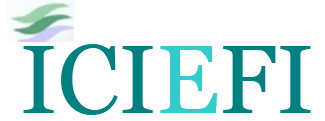EXPLORING THE CHALLENGES OF CONVENTIONAL BANKING PRACTICES AND PROSPECTS OF INTRODUCING AN ISLAMIC BANKING IN TAJIKISTAN: USING QUALITATIVE APROACH
Abstract
Keywords
Full Text:
Full Paper_AshurovReferences
Ahrens, J., & Hoen, H. W. (2013). Institutional Reform in Central economic challenges Edited by. (J. A. and H. W. Hoen, Ed.). New Haven: Routledge.
Akramov, K. T., & Shreedhar, G. (2012). Economic Development, External Shocks, and Food Security in Tajikistan. IFPRI Discussion Paper, (1163). Retrieved from http://www.ifpri.org/sites/default/files/publications/ifpridp01163.pdf
Asia Plus. (2013, November 21). Tajikistan reportedly works out draft law on Islamic banking. News.tj. Dushanbe. Retrieved from
Bibolov A. (2013). Tajikistan’s banking system still far from ideal, says Tajik central bank
head. Retrieved May 20, 2014, from http://news.tj/en/news/economy/finance/banks?page=4
Chorshanbiyev, P. (2013b). Tajikistan ’ s financial system remains vulnerable to future shocks , says WB report. Asia-Plus – Weekly Newspaper.
Coleman, B. E., Goffe, V., Perolli, B., Usupova, M., Castillo, L. V., Holzhacker, H., … Kappeler, A. (2012). Banking in the Eastern Neighbours and Central Asia: Challenges and Opportunities. Luxembourg.
Dellaert M. (2012). Challanges and Opportunities for Retail and Corporate Banks in a Fast changing and globalization. Belgium. Retrieved from www.mce-ama.com
Devan J. (2013). Barriers to Access to Payment Systems in Sending Countries and Proposed Solutions (Global Remitances Working Group). New York.
Dullien, S., Kotte, D. J., & Priewe, J. (2010). The Financial and Economic Crisis of 2008-2009 and Developing Countries (Dullien, S). New York: United Nations Publications.
Ergasheva, Z. (2010, June 24). Tajikistan ’ s banking system does not satisfy the needs of country ’ s economy , ABT experts. “Asia-Plus,” pp. 2009–2010. Dushanbe. Retrieved from http://old.news.tj/en/news/tajikistan-s-banking-system-does-not-satisfy-needs-country-s-economy-abt-experts
Falkingham, J., Baschieri, A., Evandrou, M., & Grant, G. (2009). Left behind in transition ? The well-being of older people in Tajikistan. Centre for Research on Ageing School of
Social Sciences. University of Southampton. Retrieved from http://r4d.dfid.gov.uk/PDF/Outputs/ESRC_DFID/60432_Left_Behind_Tadjikistan.pd f
Honohan, P. (1997). Banking System Failures in Developing and Transition Countries:
Diagnosis and Prediction. Switzerland.
Jonson J. (2000). A Fistful of Rubbles: The Rise and Fall of the Russian Banking System,.
USA: Cornell University Press.
Kidder L. (2013). Top Challenges Facing Financial Services in 2013. Retrieved August 16, 2016, from p://www.banktech.com/management-strategies/top-challenges-facing-financial-services-in- 2013/a/d-id/1296034?.
Lima, Hecibedel, Olejnik, S. and Z. (2011). Banking in the Mediterranean Challanges and Opportunities.
Mallorca, P. De. (2007). Challenges and Opportunities for the Financial Sector and for
Savings Banks. Spain. Retrieved from https://www.imf.org/en/News/Articles/2015/09/28/04/53/sp0302.
Matsuo, Albertazzi, Greathouse, While, B. and S. (2016). Ten Key Regulatory Challenges (Challenges of Financial Challenges). USA.
Mersch Y. (2015). Three challenges for the banking sector. In Cumberland Lodge Financial Sumit. Germany: European Central Bank, www.ecb.europa.eu. Retrieved from https://www.ecb.europa.eu/press/key/date/2015/ html/sp151112_1.en.html
Mountain, I. (2014). Addressing 4 key Challenges in the Financial Sector. UK.
Mrak M. (2000). Globalization : Trends , Challenges and Opportunites for Countries in Transition (Globalization and the Interation of Industry in the Region). Vienna.
Nesvetailova, A. (2014). Bank bailouts begin as Russia faces biggest challenge to date. City University London. Retrieved from http://theconversation.com/bank-bailouts-begin-as-russia-faces-biggest-challenge-to-date-35768.
Nyantakyi, E. B., Sy, M., & Kayizzi-mugerwa, S. (2015). The Banking System in Africa :
Main Facts and Challenges. Chief Economist Complex, 6(5), 1–16.
Okozaki K. (2007). Banking System Reform in CHina: The Challenges of Moving Toward a Market-Oriented Economy (Banking System reform in China). Banking System reform in China. Santa Monika.
Oliver, P. (2006). Purposive Sampling. In V. Jupp (Ed.),. The SAGE Dictionary of Social Research Methods. London, Engla: SAGE Publications, Ltd. Retrieved from http://dx.doi.org/10.4135/9780857020116.n162
Peng, Y. (2006). The Challenges of WTO entry to China ’ s banking industry List of Abbreviations. Cambridge.
Pomfret, R. (2009). Central Asia and the Global Economic Crisis (No. 7). Eu -Central Asia Monitoring.
Qian, J. Q. J., & Allen, F. (2011). China ’ s Financial System : Opportunities and Challenges.
Business. University of Chikago.
Ratings, F. (2014). RPT-Fitch : Kazakh Banks Cope with New Challenges , Legacy Problems. Retrieved August 15, 2016, from http://www.reuters.com/article/fitch-kazakh- banks-cope-with-new-challen- idUSFit69655320140409.
Retrieved from
http://documents.worldbank.org/curated/en/2014/01/20302396/tajikistan- moderated-
growth-heightened-risks.
Serrano S. (2010). Ethical Issues Facing the Banking Industry (Ethical Issues Facing the
Banking Industry). Banking Industry. Retrieved from http://www.fidelisinstitute.org/article.php?se=13&ca=22
Shirinov A. (2013a). Agroinvestbonk has overcome crisis, says Tajik central bank head.
Retrieved July 10, 2014, from http://news.tj/en/news.
Tadjbakhsh, S. (2008). International Peacemaking in Tajikistan and Afghanistan Compared :
Lessons Learned and Unlearned.
Tobergte, D. R., & Curtis, S. (2013). China’s Banking Reform: Problems and Potential
Solutions. Journal of Chemical Information and Modeling, 53(9), 1689–1699.
http://doi.org/10.1017/CBO9781107415324.004.
Wehinger, G. (2009). The Financial Industry and Challenges Related to Post-Crisis Exit Strategies. Financial Market Trends, 2009(2), 1–18.
World Bank Goup Report No.6/2014. (2014). Tajikistan: Moderated growth, heightened risks
World Bannk. (2015). World Bank in Central Asia. Washington DC. Retrieved from http://www.worldbank.org/en/region/eca/brief/central-asia
World Islamic Finance Marketplace. (2016). CIS Region: Future Prospects for Islamic Finance. Malaysia.
DOI: https://doi.org/10.18196/ijief.111
Refbacks
- There are currently no refbacks.
Copyright (c) 2018 IJIEF: International Journal of Islamic Economics and Finance

This work is licensed under a Creative Commons Attribution-ShareAlike 4.0 International License.
International Journal of Islamic Economics and Finance (IJIEF)
International Program for Islamic Economics and Finance
Department of Economics
Faculty of Economics and Business
Universitas Muhammadiyah Yogyakarta
Pascasarjana Building, Ground Floor
Jl. Brawijaya (Ringroad Selatan), Kasihan, Bantul
D.I. Yogyakarta 55183, INDONESIA
Official email: ijief@umy.ac.id












1.jpg)